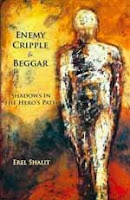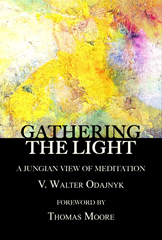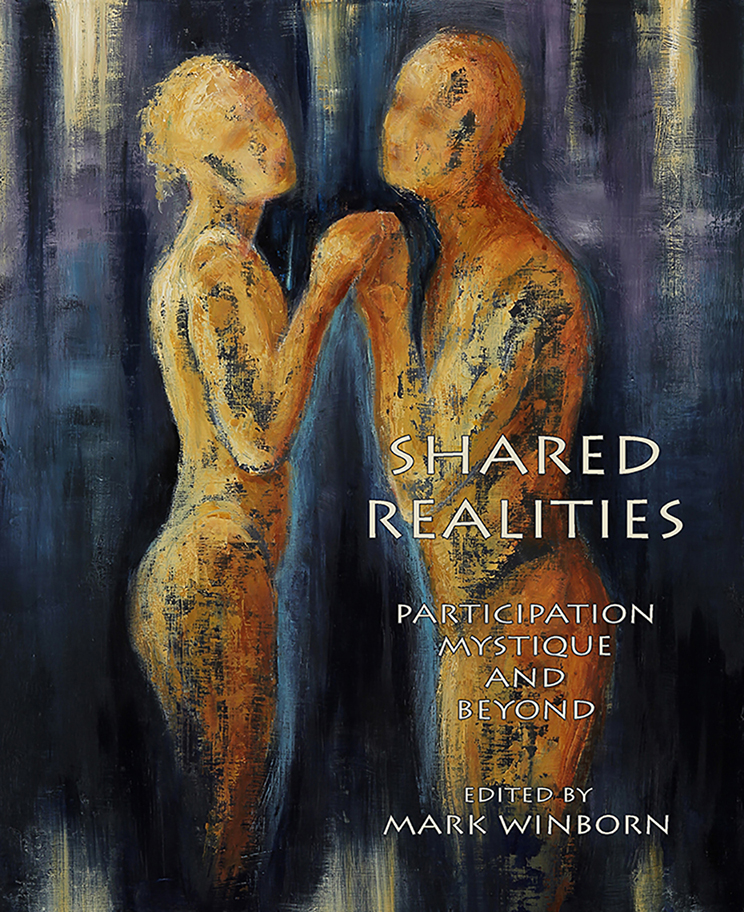jung (63)
“A wise man will know it is the part of prudence to face every claimant and pay
by Lawrence H. Staples
The Jungian model for psychological growth and development is called individuation. It is the process by which we achieve our unique potential as an individual. All psychological growth is difficult and often painful. The Jungian way, however, is especially so because it requires us to sin and bear gui
Dennis L. Merritt, Ph.D.
In the famous 1957 BBC interview, C.G. Jung proclaimed, “We need more psychology, the human psyche must be studied! Humans are the source of all coming evil.”
Psychology is positioned to usher in a holistic approach to the study of the human psyche, our relationship to the environment, and a truly interdisciplinary educational system. As Jung pointed out, all we know and experience comes out of the psyche and all our systems, including science, have an archetypal base. The
According to historian and philosopher Mircea Eliade, shamanism has been around for millennia, practically as long as humans have existed. In recent decades, the archetype of shamanism has experienced a rebirth. With growing consciousness, more and more individuals are recognizing spontaneously and consistently what our indigenous ancestors knew: that there is a divine intelligence at work in the universe, a life force of love and light, of which, by nature and birthright, we are an integral par
Enemy, Cripple, Beggar is a treasure for our times. Vital and applicable to both lay people and experts, the book flows seamlessly and spirally from scholarship, to textual interpretation, to case studies, and the analysis of dreams. Shalit draws on an impressive breadth of scholarship and myths/fairy tales, looking at both history (e.g., the Crusades or Masada) and story.
The book first discusses the key aspects of the Hero, considering Byron, the wor
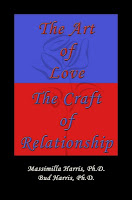 On Sale now for $10 at the Fisher King Press Online Bookstore.
On Sale now for $10 at the Fisher King Press Online Bookstore.The Art of Love: The Craft of Relationship
A Practical Guide for Creating the Loving Relationships We Want
by Bud & Massimilla Harris
Product Description
Millions of books on relationships have been printed in the last ten years. Why do we need another one? We need The Art of Love: The Craft of Relationship for the same reasons that over four and a half million readers wanted Spencer Johnson's Who Moved My Cheese in a market that already
In 1965, Jolande Jacobi, Jung’s colleague, wrote The Way of Individuation, now a classic. We can use it as a source for delving into questions that speak to us a half-century later. During that half-century the blooming of modernism, post-modernism, and post-post-modern thought raised questions and nuances that color and complicate our images of individuation as presented by Jacobi.
Jung saw himself as a scientific observer of human behavior, not a philosopher who speculated
A common and compelling component of both shamanism and Jungian or depth psychology is that each seeks to treat soul loss by retrieving and reintegrating vital essence that is missing. This must occur through direct experience; therefore, the underworld journey to retrieve the soul is one of necessity and initiation.
Swiss psychiatrist C. G. Jung believed symptoms of soul loss, such as disorientation, lack of focus, or feelings of powerlessness, exist because a portion of psychic energy that is n
Just Published by Fisher King Press
Jungian Child Analysis
Jungian Child Analysis brings together ten certified Child and Adolescent Analysts (IAAP) to discuss how healing with children occurs within the analytical framework. While the majority of Jung’s corpus centered on the collective aspects of the adult psyche, one can find in Jung’s earliest work clinical observations and ideas that reflect an uncanny prescience of the psychological research that would later emerge regarding the self and
As a child, James Newell, who has played music with some of the great names in the blues world, suffered a life-changing injury after falling through a pane of glass. Both the trauma of a hospital stay where his parents were not allowed to visit him, and the physical damage he suffered to his arm, inspired him to turn to music for healing—and especially to playing drums—at a very young age.
As he grew older, James also found solace in studying topics that were spiritual in nature, and in learning
C.G. Jung was a strong proponent of balancing rational thought with non-cerebral intelligence, insisting that consciousness inherently resides in the body and in the natural world around us. In fact, he was quite taken by Austrian Nobel prize-winning ethologist Karl von Frisch’s notion of how bees communicated navigational information to their sister bees so that they could forage the best pollen around the hive. Frisch’s research suggested the “waggle dance” performed by bees was both intellige
In my first blog, I related the events surrounding a transformative dream I had which evoked a powerful feeling tone, its effect rippling out through my life. A series of events the previous day, coupled with reading an S.T. Coleridge poem upon cracking open the first Jung volume I had yet to read, seemingly led to my experience of this dream, replete with a mysterious archetypal projection.
I amplified the image, researched the content to the extent that I was able, but only much later did I mak
C.G. Jung was a strong proponent of balancing rational thought with non-cerebral intelligence, insisting that consciousness inherently resides in the body and in the natural world around us. In fact, he was quite taken by Austrian Nobel prize-winning ethologist Karl von Frisch’s notion of how bees communicated navigational information to their sister bees so that they could forage the best pollen around the hive. Frisch’s research suggested the “waggle dance” performed by bees was both intellige

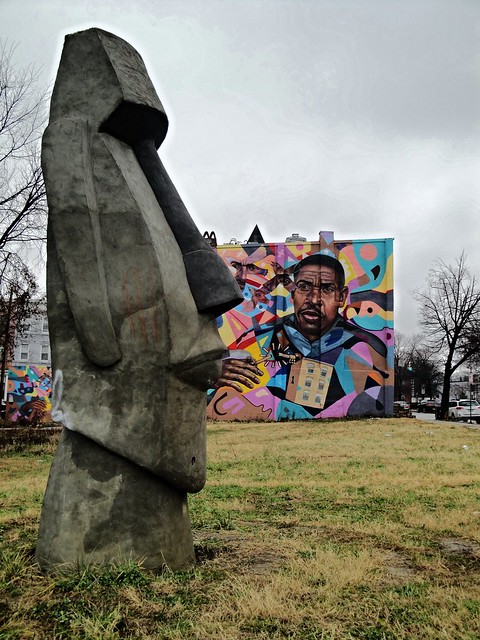
Here is a quote from Carl Jung on why people create "stone idols with human features":
“Very early in history men began trying to express what they felt to be the soul or spirit of a rock by working
A quote from Carl Jung on the subject of "masks":
The persona, for Swiss psychologist Carl Jung, was the social face the individual presented to the world—"a kind of mask, designed on the one hand to make a definite impression upon others, and on the other to conceal the true nature of the individual".
One wonders what Jung would have thought about the masks created by these veterans (see link below) as their intent in creating them was to reveal, rather than to conceal, aspects of their true natu
As I finish reading Walter Odajnyk's Gathering the Light, I see a very synthetic imagination at work to bring the reader closer to what unites rather than separates Eastern and Western thought on meditation, the mystical and the means to unite the two ways the soul may engage spirit. At the same time, his book offers a short course on C.G. Jung's ground-breaking thought on the soul inhabiting all things of the world. Lost in our ADD-oriented culture is the art and pra
to more human development than the ideals themselves.
There are many worthy arguments for the existence of ideals. These include the role of ideals as an organizing principle around which people with similar values can gather. Like goals, ideals motivate us.
We would have to be blind, however, not to acknowledge their danger. By definition, when ideals are our gui
Shared Realities: Participation Mystique and Beyond, edited by Mark Winborn, brings together Jungian analysts and psychoanalysts from across the United States, the United Kingdom, and France. Jung’s concept of participation mystique is used as a starting point for an in depth exploration of ‘shared realities’ in the analytic setting and beyond. The clinical, narrative, and theoretical discussions move through such related areas as: projective identification, negative coniunctio, reverie, intersu
Some topics are so controversial we cannot discuss them. Jane Davenport Platko’s In the Tracks of the Unseen: Memoirs of a Jungian Analyst brings one of those topics into full view: when the doctor and patient fall in love.
While we psychoanalysts and psychotherapists have thorough discussions as to why these kinds of relationships are problematic, we seldom have open discussions about what happens when they seem to work. Those who have entered such relationships rightfully fear judgement.
I will
In honor of what would have been Jung's 138th birthday, July 26, I'm sharing an excerpt from my essay on Jung's role in Depth Psychology, "Occupy Psyche: Deconstructing the Jungian Shadow in Depth Psychology," published in Occupy Psyche: Jungian and Archetypal Perspectives on a Movement (2012, Eds. Jordan Shapiro and Roxanne Partridge).
 The essay takes a look at how Jungian psychology relates to depth psychology and examines the influence of the larger-than-life persona of Jung on many of us who
The essay takes a look at how Jungian psychology relates to depth psychology and examines the influence of the larger-than-life persona of Jung on many of us who